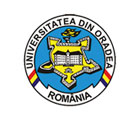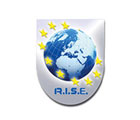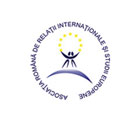The Evaluation of Cross-Border Cooperation in the EU
Secțiunea curentă: About us
16 iunie 2015
Beneficiaries
The target group specified through the project objectives and the project activities proposed is divided into two groups: direct and indirect beneficiaries.
The direct beneficiaries are divided into categories based on the activities specified in the project:
- master students from Regional development and Institutional Communication in the EU and European Public Policy and Programs Evaluation specilizations that will take part in 3 new courses provided through the project: The evaluation of Cross border cooperation (42 hours / university year), Cross border cooperation. Methodology of the evaluation (36 hours / university year) and Communication in the evaluation of public programmes and policies (36 hours / university year). There will be a total of 35 students participating at each course held by our professors specialized in cross border cooperation. Students from other specializations such as science, engineering, medicine, education, arts and languages, etc can access these courses as optional courses for them
- professors, researchers, students and specialists from public, private and NGO institutions and organisations that have an interest in cross border cooperation can participate with their own research in the debates proposed by our project activities: an international conference and a round table. These events will offer the opportunity for constructive debate, with visibility in mass media and on the site of our International Relations and European Studies Department and that of the Institute for Euroregional Studies.
The students from the two master specialization will be the primary beneficiaries of the 3 proposed courses aimed towards the field of cross border cooperation. Thei will benefit from out professors’ experience as well as from the published research. The knowledge they gain, both theoretical and practical, will be transmited through modern active teaching methods for a better understanding of the cross border cooperation field.
The impact of the project results can be summed up as involving local, regional and European institutions that work with analyzing cross border space in the debate on imrpoving cross border cooperation activities using specific policies and instruments. As indirect beneficiaries, the public, private and NGO sector can use this information to create better cross border cooperation, improve governance and propose new policies and programs.
All target groups:
- Teachers
- University students
- Researchers
- Administrative and other non-teaching university staff
- Public administrators
- Professional groups
- Civil society representatives







